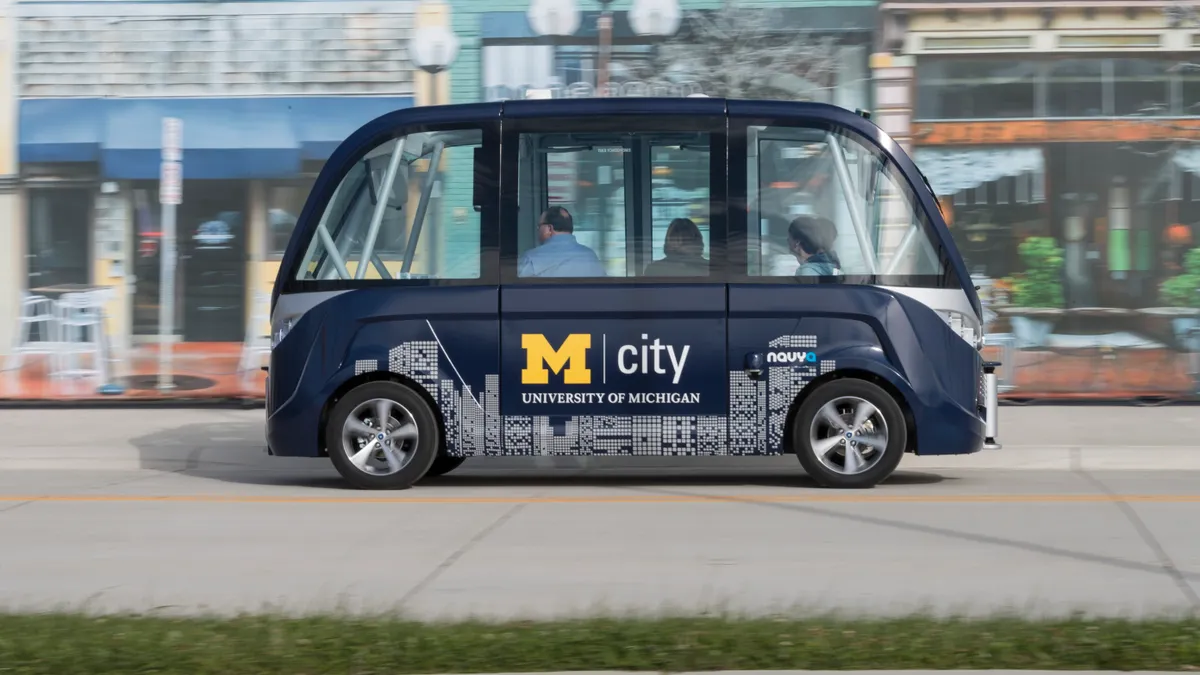Dive Brief:
- The University of Michigan’s campus in Ann Arbor, MI has launched the testing phase of a passenger service for two driverless shuttles on a set route.
- The shuttles, built by French company NAVYA, have 15 seats and will run between the university’s North Campus Research Complex and the Lurie Engineering Center.
- A safety conductor will also be on board to take over operations if needed and answer questions from passengers.
Dive Insight:
The University of Michigan is consistent with a general trend that university campuses increasingly resemble mini smart cities with their own rules, buildings and mobility services. The same company, NAVYA, has tested an autonomous shuttle on the campus of the University of Wisconsin-Madison this week in that university’s research test beds.
Route Fifty describes the route the shuttles will take in Ann Arbor as "lightly trafficked North Campus roads that are smooth, turn gently, and are free of unexpected hazards," which is arguably the perfect location to roll out this driverless shuttle, with little risk of fatalities or other dangers.
University officials and researchers have clearly looked to minimize the risks associated, which includes the capability of shutting the vehicles down in extreme weather, the ability for the safety conductor take the controls, and the shuttles’ LiDAR system, which uses invisible lasers to help navigate.
Officials with the University of Wisconsin are clearly bullish on the future of this technology as well, and appear to be preparing to follow in the footsteps of their colleagues from Michigan. Peter Rafferty, a program manager in Wisconsin’s Traffic Operations and Safety Laboratory and one of the leaders of WiscAV, said in a statement researchers are focused on "getting people comfortable with this new technology that’s coming very, very fast, whether agencies or regulators are ready for it or not."












